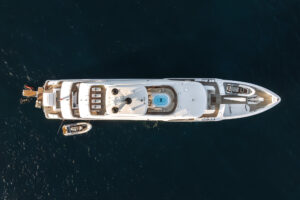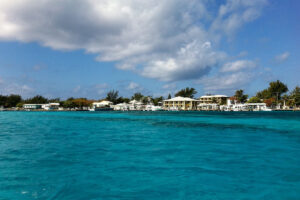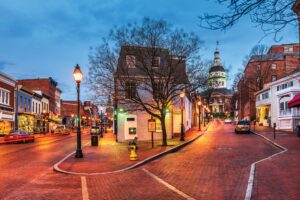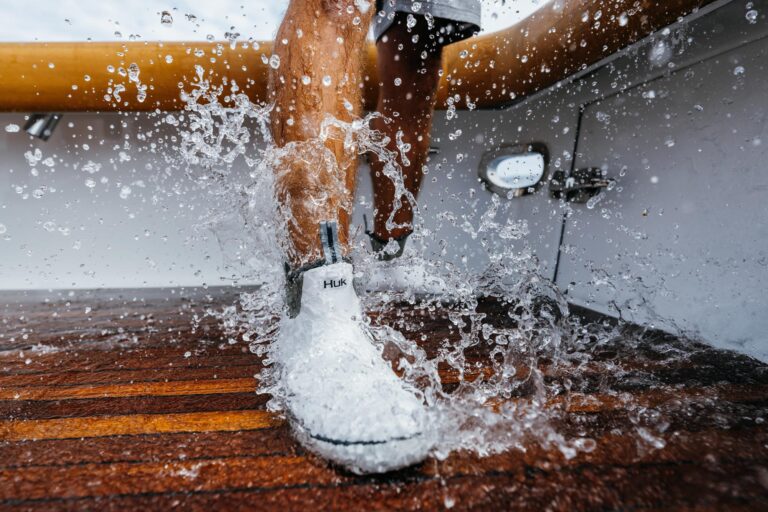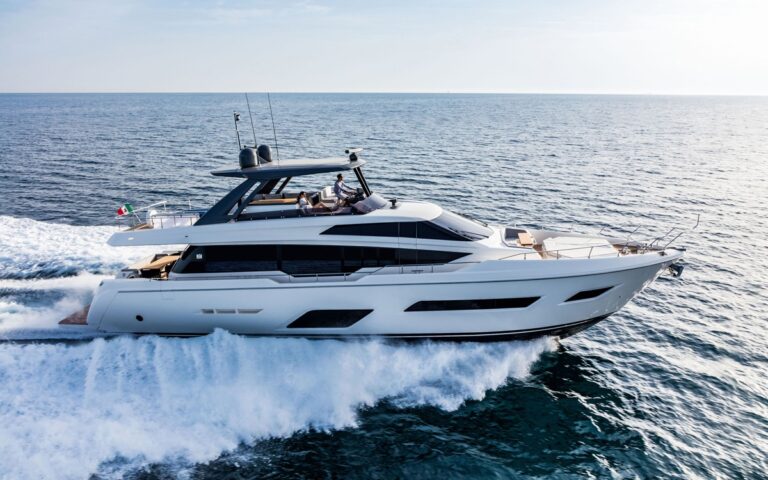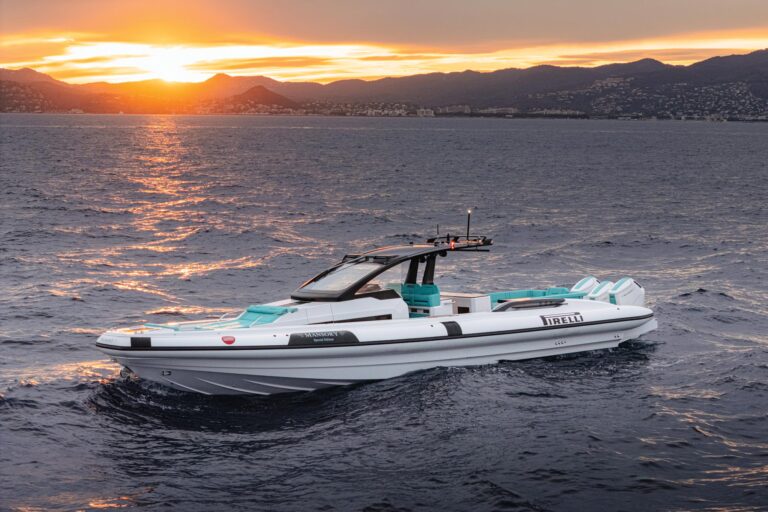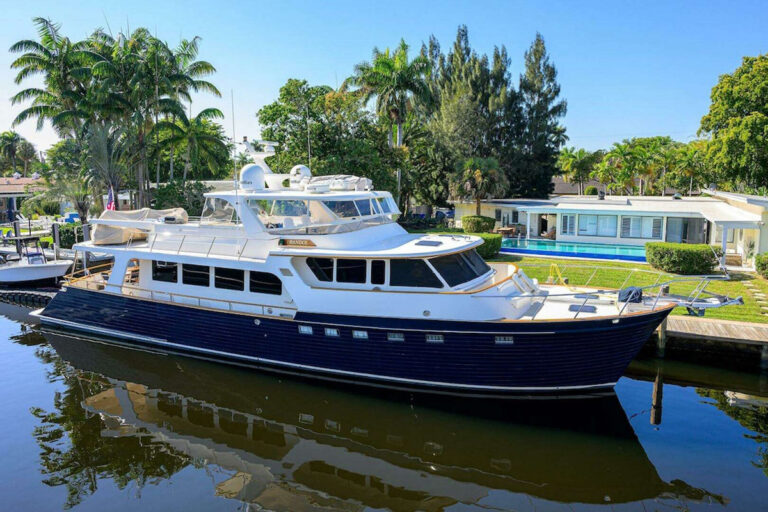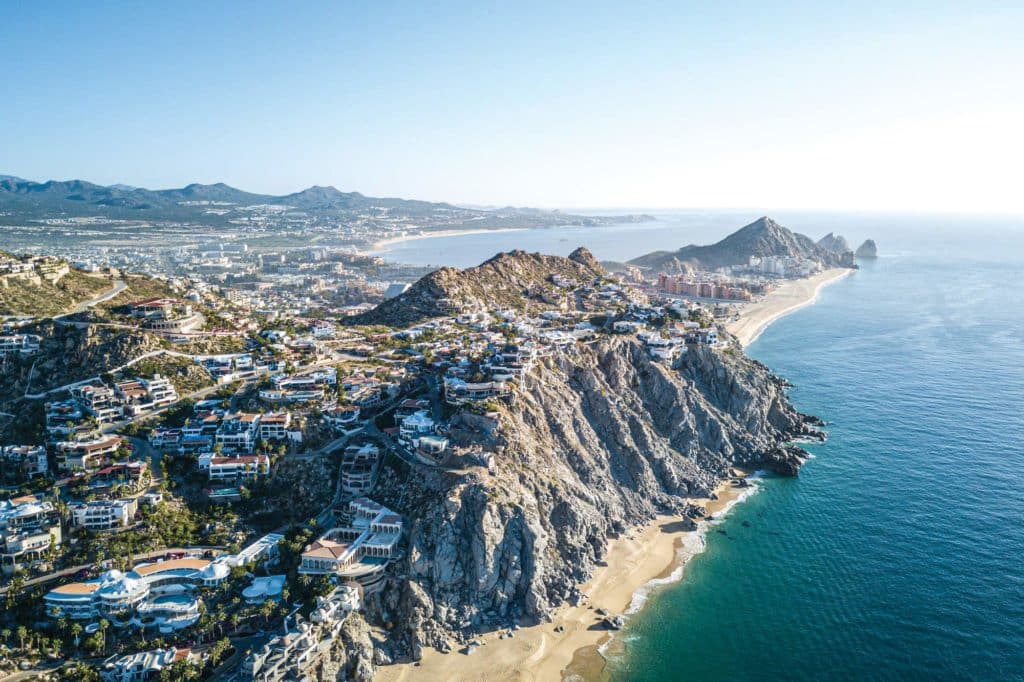
The silence was absolute—if you didn’t count the occasional hiss of meat sizzling on the barbecue. An icy margarita was at my elbow, and I was watching the sun drift behind the red mountains as I nibbled some appetizers. I fancied that I could hear a hawk gliding over the ridge above our cove, no doubt looking for his own dinner.
The water was still, the air breathless after the warm afternoon, and—not counting the hawk—we had the cove entirely to ourselves. If your experience with cruising, whether as an owner-operator or on a charter, is a daily race to the next anchorage, well, think again. The Sea of Cortez may just be the last great unsullied cruising ground.
Take the tender ashore to a white crescent of sand, and you will put the first footprints on the beach. The water is so clear, you can see the anchor on the bottom. At night, the sky is a black dome pierced by a million stars, and yes, you’ll likely spot a few satellites passing as well.
You may feel as though you are at the far ends of the Earth, but your island cove is just hours from a major city with good international airline connections and a modern marina with all the frills.

I have repeated this exact scenario many times: first aboard the 126-foot Trinity Big Easy, then aboard Paradise Found, an 80-foot Sunseeker Manhattan that was an enticement from Las Ventanas al Paraiso resort, and then aboard an array of bareboat charters. Every experience has been magical.
The Sea of Cortez is long and thin, bounded by the peninsula of Baja California, Mexico, to the west and the Mexican mainland to the east. Technically, it is the Gulf of California, but since Hernán Cortés sailed to its northern end in 1538 to prove that California was not an island, it has been nicknamed after the Spanish explorer. Jacques Cousteau first ventured into this sea in the 1950s, and he dubbed it the “aquarium of the world.” These waters have enticed anglers with more than 900 fish species, and you can even grow blasé of daily encounters with dolphins, pilot whales, sea lions, turtles and eerie but harmless rays.
Yes, civilization is starting to intrude, but the Sea of Cortez remains generally free from rows of condos and sprawling resorts. There are some, but what you will also find are nearly empty anchorages, beaches that don’t bear the ravages of civilization, incredible fishing, and generally flawless weather.
La Paz, the capital of Baja California and its social center, has fine marinas that serve as a starting point for many cruises. Espiritu Santo is the largest of the islands that shelter La Paz and has a ragged shoreline that provides one good anchorage after another. Partida Cove, about 27 nautical miles from La Paz, has a sandy bottom for good holding and is your introduction to solitude. This island chain is a natural marine park, but cruisers can kayak, snorkel or wander the trails for views of the anchorage.

At the tip of Espiritu Santo, we snorkeled amid fleets of brilliant tropical fish, only to be startled by a brown torpedo that turned out to be a curious seal showing off his underwater dexterity with spins, rolls and swoops. Later, sea turtles watched us with prehistoric eyes.
At Caleta el Candelero (“Candlestick Cove”), we were introduced to bartering. A panga, one of the local fishing boats, came alongside with two grinning fishermen holding a lobster that seemed to be about the size of a German shepherd.
“You want buy or trade?” one asked. They didn’t want pesos, but some cans of peach juice delighted them, and we had fresh lobster.
On several trips to Isla San José, we’ve been accompanied by manta rays that easily measured 10 feet across from wingtip to wingtip. Ten miles farther is San Evaristo, with a small fishing village where the four dozen residents play (or cheer for) a daily volleyball game.

Another fine spot is “Honeymoon Cove,” a narrow inlet with an anchorage for just a single yacht. This was reportedly Cousteau’s favorite haven for his Calypso. Bask in the sun, frolic in the water and have a margarita—or two.
Isla Carmen has several sheltered anchorages, but plan at least a short stop at Bahia Salinas, where you can venture ashore to explore an eerie ghost town left from salt-mining operations.
The southernmost tip of Baja, marked by the row of pinnacles known as the Friars, is close to Cabo San Lucas, another starting point for Sea of Cortez adventures. With its international airport, Cabo is all about resorts and tourism. It’s also where, in the 1950s, John Wayne and Bing Crosby would fly down from Hollywood for the marlin fishing that remains a strong draw today.
For North Americans, the Sea of Cortez is delightfully close, warm when much of the continent is snowbound, and just waiting for cruisers to drop the hook.

